Melbourne filmmaker Noora Niasari wins Sundance audience award for Shayda
Noora Niasari’s film Shayda has won an audience award at the Sundance Film Festival for shining a light on the plight of Iranian women.
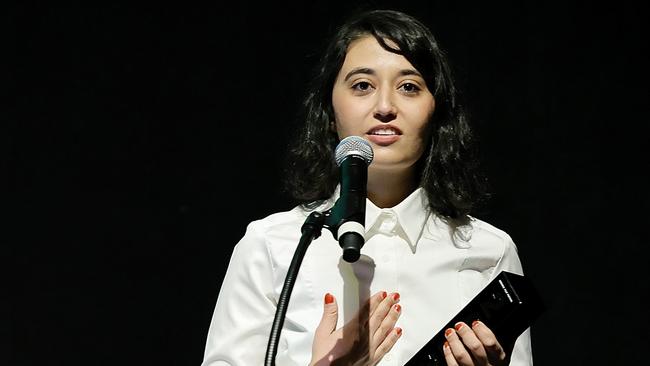
Australian-Iranian director Noora Niasari has won an audience award at the Sundance Film Festival in Utah for her film, Shayda, that highlights the courage and resilience of Iranian women.
Niasari’s biographical film about a mother (Iranian-French actor Zar Amir Ebrahimi) and daughter who seek refuge in an Australian women’s hostel in 1995 to escape an abusive husband and father elicited a strong response at Sundance and won the audience award in the world cinema dramatic section.
“There’s been a lot of tears in the cinemas and people seem to be very struck by the mother-daughter connection and especially by Zar’s performance,” Niasari says.
Variety hailed Shayda, which had its world premiere at Sundance, as a “powerful debut feature that shines a timely light on an Iranian woman’s resilient spirit”.
The fact Amir Ebrahimi went on to win the Cannes best actress award for Holy Spider after she was cast gives the Australian film even more traction, as does the support of Cate Blanchett and husband Andrew Upton as executive producers alongside lead producer Vincent Sheehan.
The film’s release is timely given the women-led protests in Iran following what Niasari calls the “murder” of 22-year-old Iranian woman Mahsa Amini.
“We really wanted to elevate the film and make it more of an international film and bring it to a broader audience,” Niasari, 32, says. “It’s been incredible having Cate, a remarkable artist who is so politically conscious and concerned about what’s happening in Iran and women’s rights in general, as a champion of the project.”
Certainly Niasari, who emigrated to Australia from Tehran as a one-year-old, is well on her way, with a high-profile international film to be set in France in development. Shayda will have its Australian premiere at the Melbourne International Film Festival in August.
Four Australian films screened at Sundance this year: horror film Talk to Me, Robert Connolly’s Blueback, Run Rabbit Run and Shayda. Talk to Me attracted a strong response, and it seems there has been a sale for North American rights to A24 in the high seven-figure range, while Maslow Umbrella 387 Entertainment will release it here.
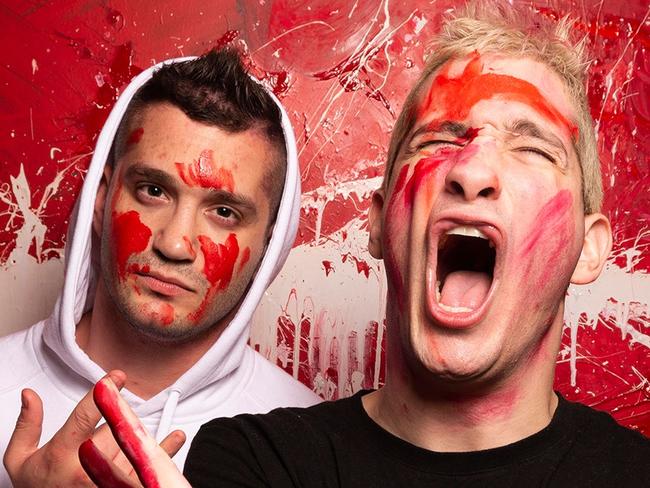
Directed by Adelaide twin brothers Danny and Michael Philippou (whose YouTube channel, RackaRacka, has 6.5 million subscribers) and produced by The Babadook’s Samantha Jennings and Kristina Ceyton of Causeway Films, the supernatural horror film announces Ivorian-Australian Sophie Wilde as a major acting talent.
She plays teenage Mia, who at a seance following her mother’s death, enters the spirit world via a mysterious embalmed hand.
The film had already premiered at the Adelaide Film Festival and will now move on to SXSW and Berlin.
The second Australian film to have its world premiere at Sundance was Daina Reid’s Run Rabbit Run, another supernatural drama that recently was sold to Netflix.
Starring the always reliable Sarah Snook (Succession) as a fertility doctor haunted by her sister’s death, we eventually come to realise how her sister died.
Australian actor Eliza Scanlen (Babyteeth, Sharp Objects) made an impression in The Starling Girl, an American film written and directed by Laurel Parmet. Set in an evangelical community in Kentucky, it follows Scanlen’s teenage character, Jeb Starling, who falls for a married pastor, Owen (Lewis Pullman, son of Bill).
Alice Englert makes her feature directing debut and stars in the mostly US-set New Zealand dark comedy, Bad Behaviour, which even has a cameo from her mum, Jane Campion, as a bespectacled doctor. It also features Jennifer Connelly and Ben Whishaw.
And Thomasin McKenzie plays the title role in Eileen, a secretary at a boy’s prison, alongside a standout Anne Hathaway as we have never seen her, as the head of education at the facility and the subject of Eileen’s desire.
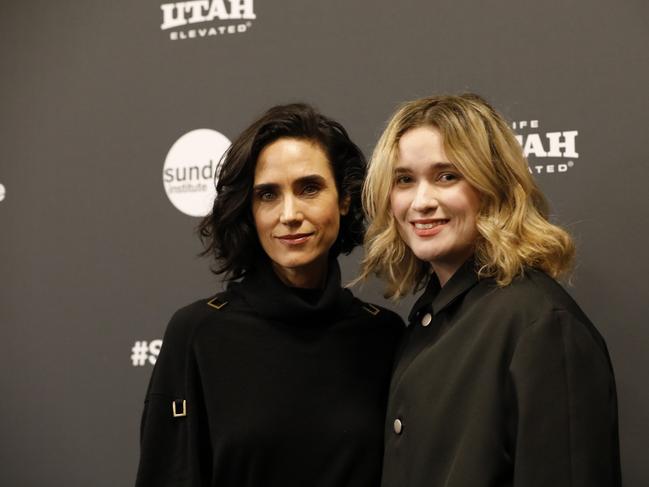
Three exceptional Sundance documentaries focus on legendary performers.
In Little Richard: I Am Everything director Lisa Cortes clarifies the black, queer origins of rock’n’roll. Certainly no one was more outrageous on stage than Richard Wayne Penniman, aka Little Richard – not even Elvis Presley.
“Elvis came backstage and said, ‘Don’t you worry about anything, you will always be the true king of rock’n’roll,” the singer-songwriter, who died in 2020, recalls in archival footage. He also notes how his music “broke down the rules of segregation because black and white kids wanted to be together”.
Mick Jagger, David Bowie and Paul McCartney say they were hugely influenced by his music. The Beatles were hardly known when they were on the same bill in Hamburg in 1962.
“We used to sit there like disciples in the dressing room,” McCartney recalls. “All our screaming numbers had to do with him.”
In the engrossing Still: A Michael J. Fox Movie, Davis Guggenheim (An Inconvenient Truth) largely allows the star, diagnosed with Parkinson’s in 1991, to speak for himself. It’s gratifying to learn Fox hasn’t lost his sense of humour, recalling how he realised something was wrong after a night in a bar with Woody Harrelson. “Maybe we had one of our famous fights?” he quips.
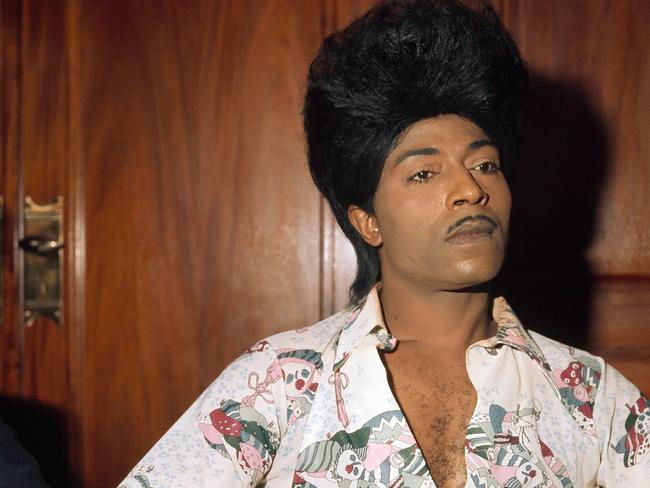
He then goes back to his wild youth, the smoking and drinking and “serial fender benders” with his father’s cars. He traces his career and his rise to unexpected fame in sitcom Family Ties and his casting in Back to the Future, when for 3½ months he was acting in both at once and hardly slept. He met his wife, Tracy Pollan, on the series and says she helps him stay strong. “When we got together I was so in love and I still am.”
Initially he drank to escape, and has now been sober for 30 years. He takes pills to control his tremors, demonstrating how he is shaking during the interview. He talks about establishing the Fox Foundation for Parkinson’s Research, which has raised more than $US1bn.
The most revelatory documentary at Sundance was Pretty Baby: Brooke Shields, directed by Lana Wilson (Miss Americana). Like Fox, Shields was a staple of magazine covers for many years, though from a much younger age, when her nubile beauty was exploited in the movies Pretty Baby and the remake of The Blue Lagoon where, she says, “they wanted to sell my sexual awakening”, even if she remained a virgin until the age of 22.
Her sexualised, nudity-laden career was driven by her alcoholic mother. Her childhood friend, Laura Linney, has a lot to say during the film: “I kept hoping she was OK”.
In the film Shields recalls being raped by an unnamed film identity when they were supposedly meeting to discuss a project. She found solace when she married tennis star Andre Agassi. “I loved to not have to be the most famous person in the room.”
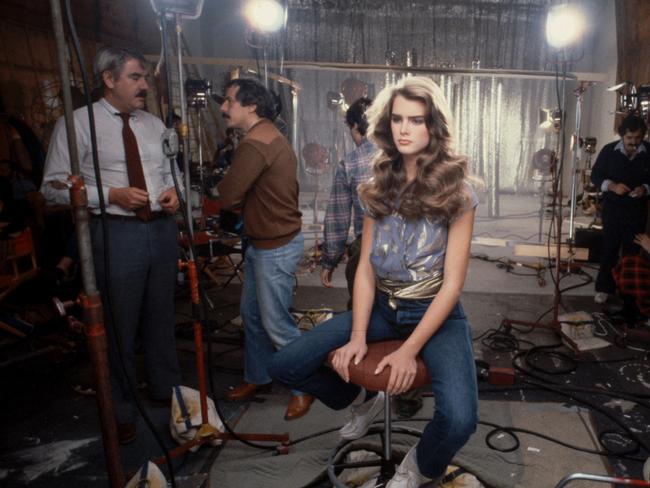
Agassi was controlling, she says. When her crazed fan character licked Joey’s fingers on an episode of Friends, Agassi, who was on the set, didn’t like her performance.
She recalls him declaring, “You made a fool of me. How dare you! … He went home and smashed every one of his trophies like for Wimbledon and the French Open.” They divorced two years later. “We should have just been friends,” she concludes.
Her second marriage has been happy, despite her problems conceiving and suffering severe post-natal depression. We see her in the final scenes discussing with her daughters her contentious roles from her early years.

To join the conversation, please log in. Don't have an account? Register
Join the conversation, you are commenting as Logout